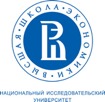International conference "Urban inequalities vs. Urban inclusion: migration, identity and public space"
On June 19-21, 2019, Moscow, Russia, International conference "Urban inequalities vs. Urban inclusion: migration, identity and public space"
 | .jpg) | .jpg) |
Institute of Social Policy The National Research University Higher School of Economics
Centre for Urban Anthropology at KB Strelka
Oxfam in Russia
The growing pace of urbanization in the last decades has brought together unprecedented number of people to live in unprecedented density, raising the new debates on tolerance and equal access to the key resources. However, the sheer scale and speed of migration to the cities and between cities, the urbanization of previously suburban areas and recultivation of formerly depopulated lands also brings to the light social confrontations not bound directly with the deficit of resources - including the struggle for memories and local belonging, the possibility to safely maintain one’s ethnic and gender identity. The contemporary city built as a space for everybody often turns into an arena of contesting relations. The conference “Urban Inequalities: Segregation, Migration and Social Conflict” will be centered on ethnographic analysis to address urban inequality phenomena, such as unemployment, informal employment, homelessness, access to essential services, intolerance, conflict, digital divide.
Keynote speakers:
June, 19, 2019, 10:45 – 12:00
Myasnitskaya 20, 311
(English with Russian translation)
Setha Low (City University of New York) Spatializing Culture: The Ethnograghy of Space and Place
This talk offers an in-depth analysis of “spatializing culture,” an idea that grew out of my work on the Latin American plaza (Low 2000) and Deborah Pellow’s (2002) ethnography of West African socio-spatial organization and institutions. Through subsequent research and theory-building “spatializing culture” has evolved into a multi-dimensional framework that includes social production, social construction, embodied, discursive, emotive and affective, as well as translocal approaches to space and place. By “spatialize” I mean to produce and locate—physically, historically, affectively and discursively—social relations, institutions, representations and practices in space. “Culture” in this context refers to the multiple and contingent forms of knowledge, power and symbolism that comprise human and non-human interactions; material and technological processes; and cognitive processes including thoughts, beliefs, imaginings and perceptions.
Spatializing culture is useful not only as a conceptual framework; it also provides a powerful tool for uncovering social injustice and forms of exclusion. Further, as the ethnographic examples will illustrate, it can facilitate public engagement because spatial analyses offer people and their communities the means for understanding the everyday places where they live, work, shop, and socialize. Spatializing culture is not only a scholarly endeavor, but offers a basis for neighborhood activism such as opposing or modifying architectural, planning and design interventions that have the ability to destroy the architectural centers of social life, erase cultural meanings from the landscape, and restrict local participation in the built environment.
June, 20, 2019, 12:30 – 14:00
Myasnitskaya 9/11, 518
English with Russian translation
Dace Dzenovska (Oxford University, UK) The Space Between Cities: Emptiness and the End of the World in the Latvian-Russian Borderlands
In the Latvian-Russian borderlands, the introduction of capitalist freedoms has produced a palpable and radical change that locals describe as “emptiness.” When talking about emptiness, people point to houses and apartments that stand empty and list friends and relatives who have left. They fear further school closures and cancelation of transportation routes. And they imagine the future as an entirely different world in which they will have no part.
The lecture examines “emptiness” as a historical formation that is at once a transitional state towards a radically different future and an enduring state of affairs with its own internal dynamics. It uses emptiness in the Latvian-Russian borderlands as an analytical lens for reflecting on capitalism’s spatiotemporal arrangements, whereby spaces and people where the city does not reach are abandoned by capital and the state and attempt to inhabit "emptiness."
Conference program
Programme_Moscow_06_2019 (DOCX, 25 Kb)
Working languages: Russian and English
Conference committee
Ekaterina Demintseva, Director, Centre for Qualitative Social Policy Research, Institute for Social Policy, Higher School of Economics, Moscow; Associate Professor, School of Cultural Studies, Higher School of Economics, Moscow
Mikhail Alekseevsky, Director, Centre for Urban Anthropology, Strelka KB, Moscow.
Tatiana Intigrinova, Policy Advisor, Oxfam in Russia,
Venues:
National Research University Higher School of Economics (academic program),
Strelka Institute for Media, Architecture and Design (public program).
E-mail: urbanconf2019@gmail.com
Have you spotted a typo?
Highlight it, click Ctrl+Enter and send us a message. Thank you for your help!
To be used only for spelling or punctuation mistakes.